Helen Keller left a lasting impact on DeafBlind history. Born on June 27, 1880, in Tuscumbia, Alabama, Helen Keller’s life story is a story of the strong-willed human spirit. Despite being blind and deaf in the 1880s, she defied all odds and emerged as an influential figure in the fields of literature, advocacy, and education. As we celebrate DeafBlind Awareness Month, it is only fitting to dive into the extraordinary life of Helen Keller.
Early Life and Challenges
Helen Keller’s journey began with a childhood illness at the age of 19 months. The illness, believed to be scarlet fever or meningitis, left her blind and deaf. In her early years, she was very isolated due to a lack of communication access. However, her determination and unwavering support of her family would become the foundation for her future successes.

“I tried hard to teach her my sign language, but she was dull and inattentive.” (Photo by Perkin’s School for the Blind)
Helen Keller: Education and The Miracle Worker
Helen Keller’s life took a turn at the age of seven when her parents enlisted the help of Anne Sullivan. Anne, herself visually impaired, shared a unique approach to DeafBlind education utilizing touch and sign language. Through sheer perseverance, Anne taught Helen to understand and communicate with the world around her.
This incredible journey was shown in William Gibson’s play, “The Miracle Worker,” which later became an acclaimed film. The play showcased Helen Keller’s breakthrough moment when she realized the connection between words and objects, famously exclaiming “water” while feeling the cool liquid flowing over her hands at the water pump. This pivotal moment opened up a world of possibilities for Helen and laid the groundwork for her future accomplishments.
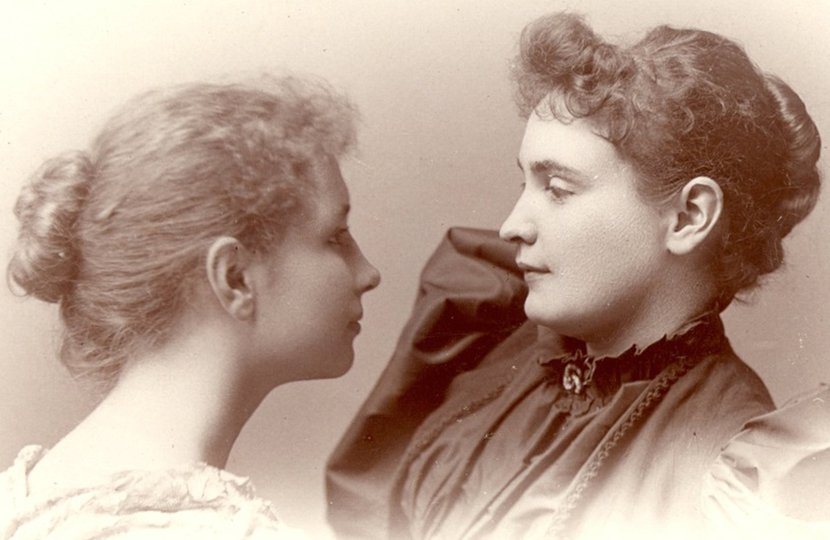
Advocacy and Impact
As Helen Keller started her journey into adulthood, her thirst for knowledge and her desire to push for positive change became apparent. She pursued higher education at Radcliffe College and became the first DeafBlind person to earn a Bachelor of Arts degree. Throughout her life, she rooted for causes that aimed to improve the lives of people with disabilities, advocating for equal rights, access to education, and social acceptance.
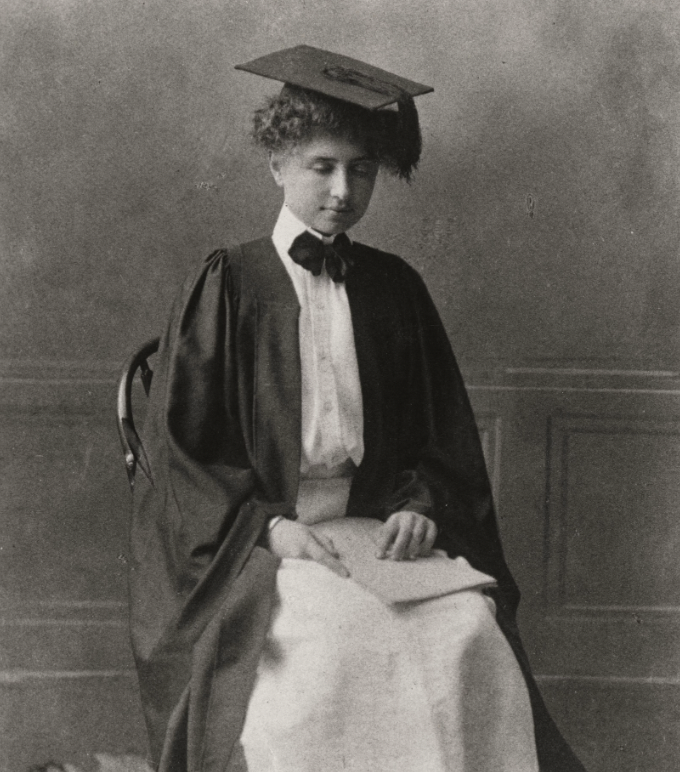
Helen Keller’s Autobiography: “The Story of My Life”
One of Helen Keller’s most significant contributions to literature is her autobiography, “The Story of My Life.” The book, published in 1903, provides a firsthand account of her childhood struggles, her educational journey, and her ultimate triumph over adversity. Through her words, Helen Keller enlightened readers about the daily challenges faced by individuals with sensory disabilities and showcased the power of determination, resilience, and the human spirit.
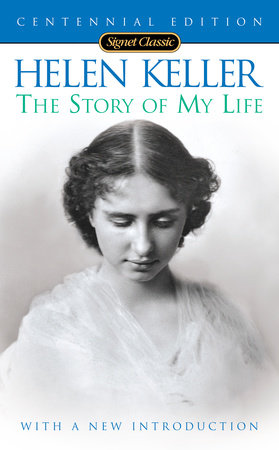
Helen Keller: Legacy and Famous Quotes
Helen Keller’s impact on the world extended far beyond her lifetime. Her tireless efforts earned her numerous accolades, including the Presidential Medal of Freedom, and her work continues to inspire millions today. Her famous quotes serve as guiding beacons for those facing personal challenges:
- “The only thing worse than being blind is having sight but no vision.”
- “Life is either a daring adventure or nothing at all.”
- “Character cannot be developed in ease and quiet. Only through experience of trial and suffering can the soul be strengthened, ambition inspired, and success achieved.”
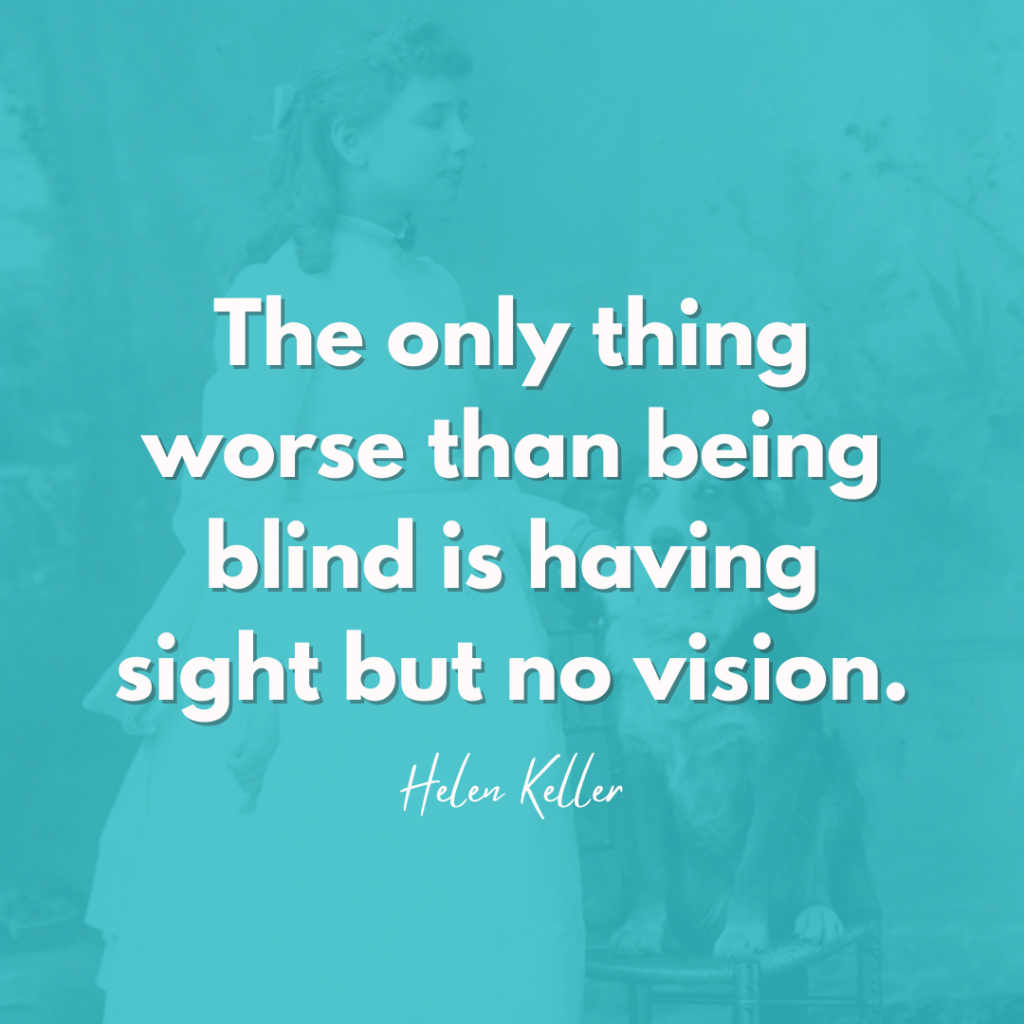
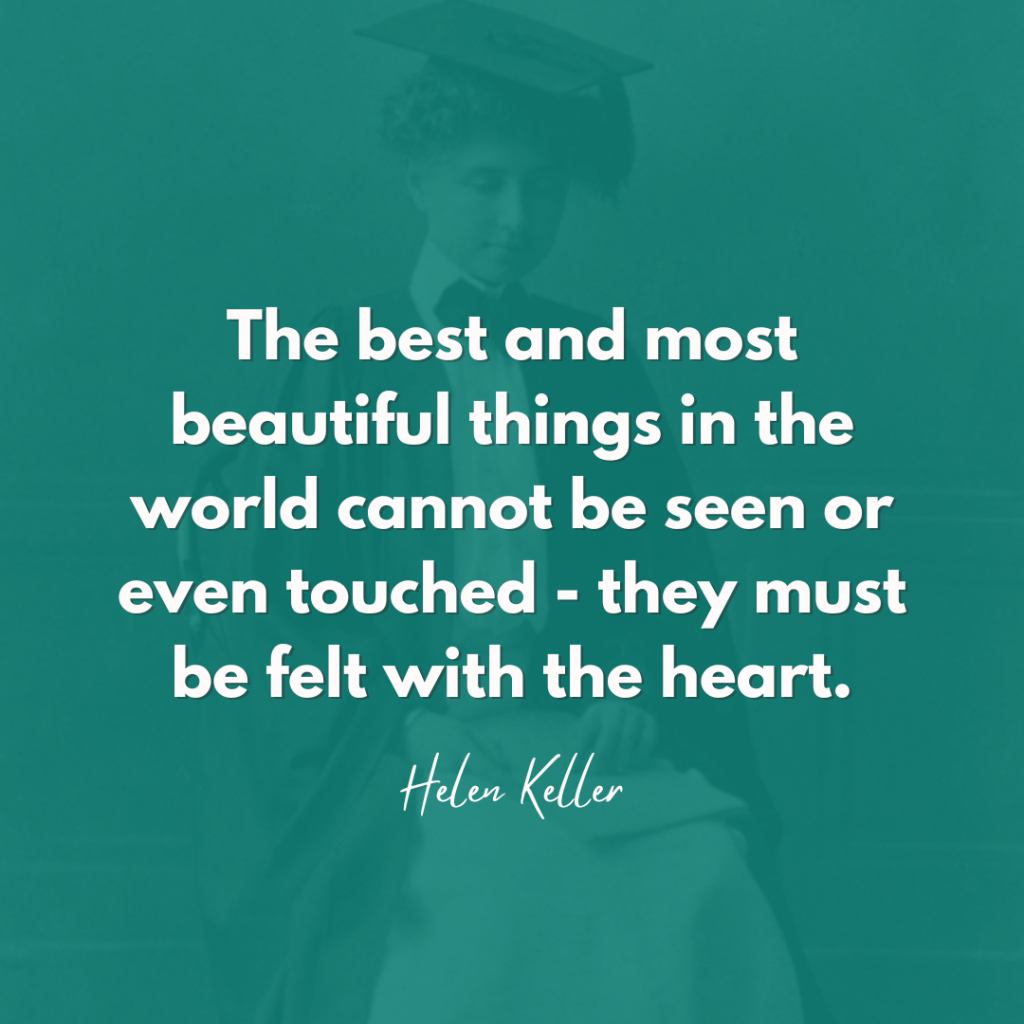
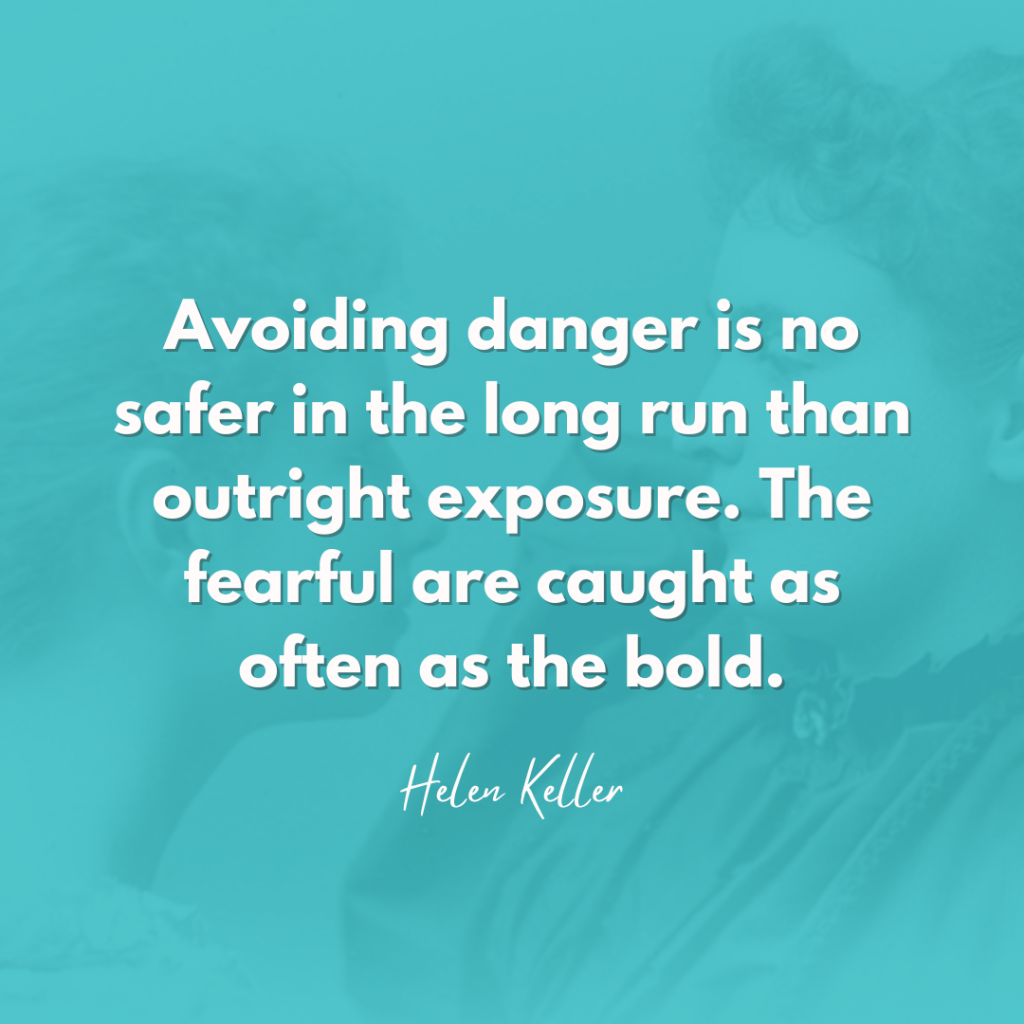
Helen Keller’s life story is a testament to the human spirit’s resilience and the power of determination. She defied the limitations imposed by her disabilities in her time period, leaving a mark on history. Her unwavering commitment to education, advocacy, and equality paved the way for countless individuals with sensory disabilities. As we celebrate DeafBlind Awareness Month, let us honor Helen Keller’s legacy.
To learn more about DeafBlindness, visit The National Center for DeafBlindness.
To start your ASL learning journey, try our FREE demo.




Comments